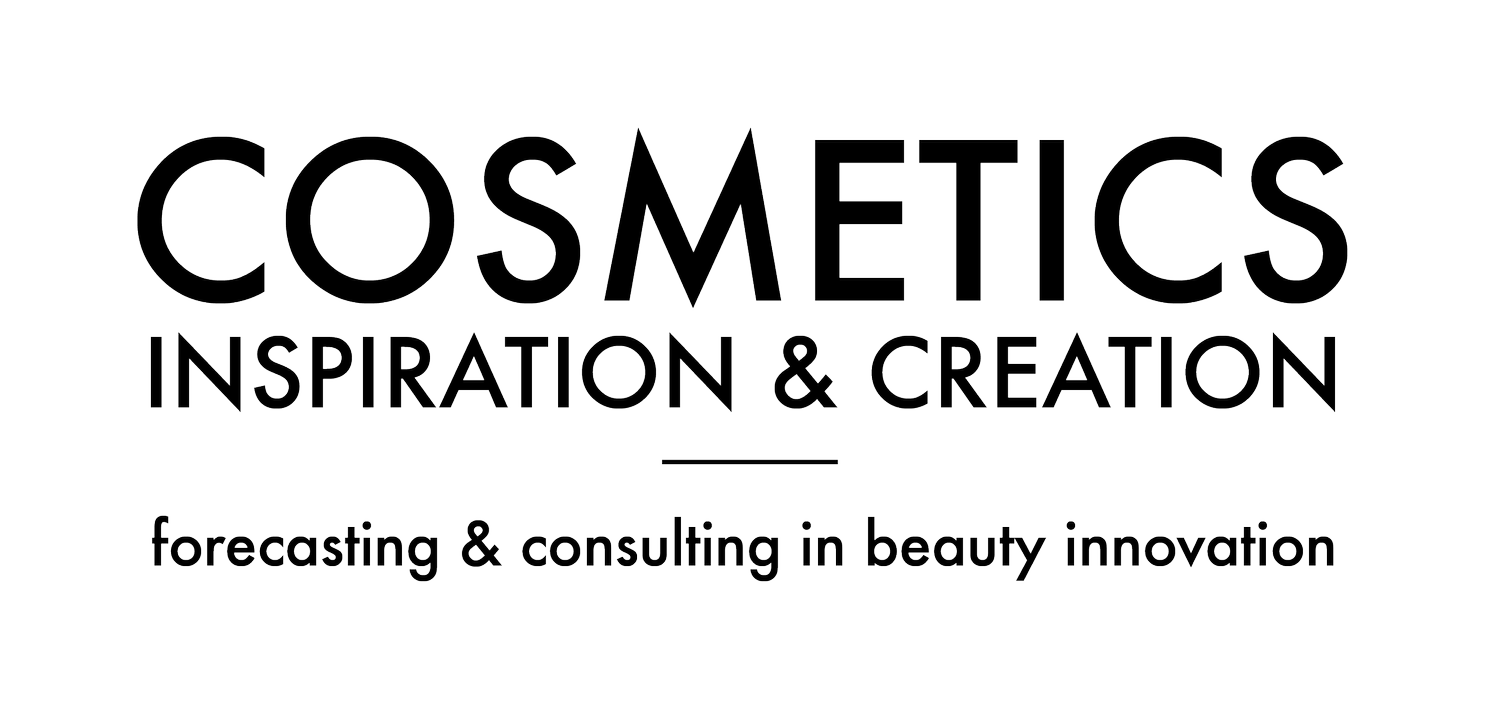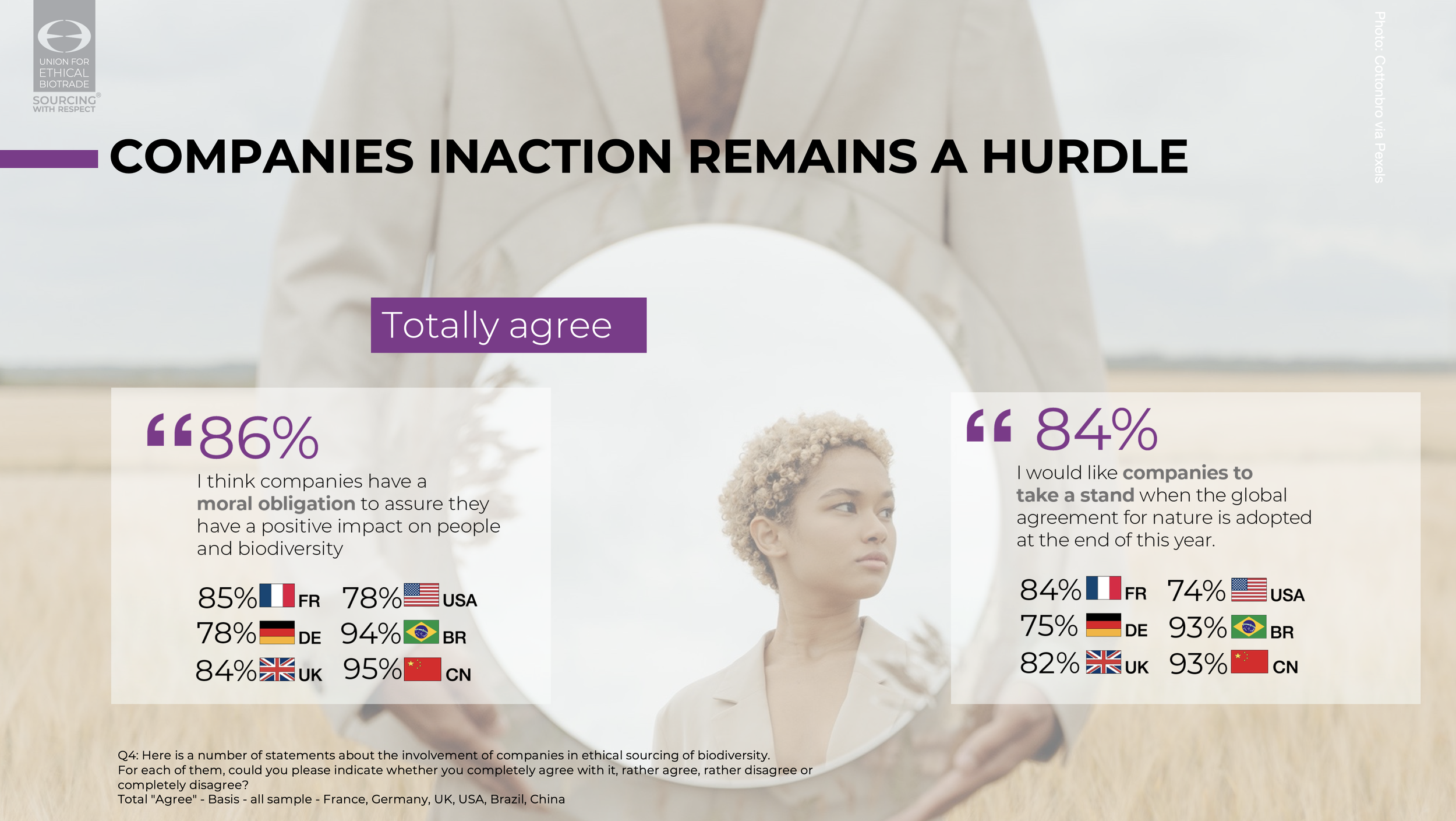Photo: Maksim Goncharenok via Pexels
The Brazilian hero brand; Chinese consumers high expectation in sourcing of natural ingredients; and the consumer push for fair wages; the latest findings from the 2022 Union of Ethical BioTrade global survey reveal a picture of growing biodiversity awareness and an increasingly expectant consumer.
On October 19, 2022, Leila Rochet, CIC’s Chief Innovation Officer and also Consultant for the UEBT, was in Grasse for the annual UEBT conference, where the team unveiled the results of its latest global biodiversity survey, conducted by Harris Interactive/Toluna.
Since UEBT began back in 2009, the world looks like an entirely different place. Change that has never been so marked or occurred so rapidly than in the past two years. The pandemic forced everyone to take stock of their environment - quite literally - and since UEBT’s last in-person event in 2019, consumers have taken the time to get better informed on the impact of their purchases. In the interim years, they have grown to value brands and companies that act today to improve tomorrow.
Reflecting on this seismic consumer shift, the UEBT barometer was changed - moving on from measuring improvement of biodiversity awareness (which is now globally high) to focusing on more nuanced insights and behaviours. This year, a total of 14 questions were asked to more than 6,000 people spanning 6 countries (France, UK, Germany, Brazil, USA and China).
Below is a summary of the key findings:
1 - The Biodiversity Boom
Biodiversity is chosen by 21% of global consumers as their second most urgent concern, ranking second after climate change, from a pre-set list of five topics. In Brazil and China, biodiversity is ranked as number one, while in Germany, a country where biodiversity awareness is still low (76%), it ranks as the fourth most important concern after climate change, plastic pollution and forest loss.
What is clear is that biodiversity is of significant interest to consumers. In fact, 54% of those surveyed said it was very important to them to have information regarding a product’s impact on biodiversity listed on the product packaging or web page, only slightly lower in importance than the list of ingredients. This figure goes up to 61% amongst those consumers who have the highest awareness of biodiversity and reaches 61% among consumers who buy natural beauty brands. Respondents in Brazil appear to be particularly interested in these issues, scoring the highest for each item. Importance is also given to labels that validate a company’s ethical practices, being especially very important to consumers in Brazil (76%), China (46%) and France (42%).
2 - The Human Imperative
A total of 9 out of 10 respondents agree that it is the obligation of humans to protect nature, and 82% believe they can have an impact by buying products from companies that respect biodiversity. A figure that is also high on expectations they have regarding companies. 53% think it is a moral obligation for companies to respect biodiversity and the figure has increased since 2020. They want to be informed of the actions and expect companies to take a stand, for example, when the agreement for nature is adopted at the end of this year.
3 - Fairness and Ethical Practices
When asked to select the most important actions taken by companies from a pre-given list of 18 items, paying a fair price and a decent wage takes the #4 position. Ethical practices, especially relating to biodiversity and the protection of nature, are expected from brands. To note, in the Top Five, paying fair prices or decent wages and protecting the bees are mentioned by half of the sample as very important actions. These results are even higher among women below 30 years old. 57% said it is very important that companies address reforestation and 50% mentioned fair prices.
4 - Brands perceived as the most supportive of biodiversity
So which brands are considered to take most concrete action to respect people and biodiversity? Only a few brands clearly stood out spontaneously in all countries, except for Brazil. 72% of consumers could name just one beauty or food brand, with younger consumers, consumers aware of biodiversity and women being ahead of other cohorts.
In France, 25% of respondents mentioned Yves Rocher (in augmentation vs 2020). In Germany, Nivea is mentioned by 21% (with higher level among men). To note that 19% of natural brand purchasers cited Weleda (joint top with Nivea). In the UK, The Body Shop was mentioned by 24% of respondents ( 33% for female respondent)s. From the US, all figures are low - Burt's Bees’ heritage in beekeeping helps the brand score 12% overal. Like previous years, Natura emerges as the clear biodiversity champion in Brazil with 69% of mentions overall (up from 55% in 2020), rising to 73% amongst females over 30 years old. In China, L’Oréal reaches the first position with 21% and respondents mention more prestige brands.
The CIC Take:
Consumers are increasingly aligning respect for biodiversity with respect for people (in terms of fair wages, etc). Ethical practices (and therefore, transparency) are now top consumer priorities.
Opportunities exist for brands to own the natural/ green beauty conversation in their territories - with the exception of Brazil, there is no clear natural beauty hero brand.
Chinese consumers have high expectations and are important natural beauty brand buyers.
The UEBT Biodiversity Barometer Full report can be downloaded on the www.biodiversitybarometer.org website.





